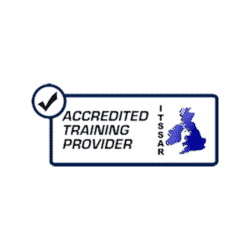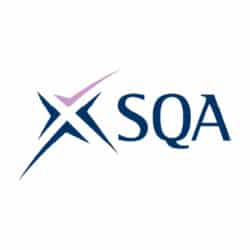Introduction
2 Start Ltd (2 Start) is a provider of Apprenticeship and commercial, sector specific training, to the logistics sector.
2 Start provides blended provision including online training and face-to-face practical training from 4 sites (Portsmouth, Southampton, Worthing and Reading) in the South of England.
2 Start is fully committed to providing a high-quality provision and takes every step to ensure every learner and apprentice has this experience. 2 Start is committed to resolving any complaints to the fullest extent and in a timely fashion.
The Complaints Policy enables apprentices, learners, employers and employees who have concerns and/or complaints to have them addressed. It also provides a mechanism by which learners and apprentices can challenge assessment decisions.
2 Start seeks to provide an accessible, fair and straightforward system which enables individuals to raise concerns and which ensures an effective, timely and appropriate response.
This will also enable 2 Start to monitor and manage the quality of service using feedback received from all stakeholders.
Context and Scope
This Policy outlines the Complaints Procedure for personnel, Apprentices, Learners and Employers, including the procedure for appealing an assessment decision.
The policy covers all training provision delivered by 2 Start.
Policy Statement
Apprentices and learners have the fundamental right to learn, be assessed and work in an environment that is free from discrimination, bullying and harassment at all times.
Apprentices and learners have the fundamental right to have equal access to training and assessment that enhances career progression and promotional opportunities through continuous professional development opportunities.
Policy Aims and Objectives
The aim of this policy is to ensure that learners, apprentices and staff have a formal and effective mechanism to complain without fear of victimisation and repression. All complaints and appeals will be resolved within a reasonable time frame and lessons will be learned from issues identified.
This will be achieved by:
- Ensuring that every learner and apprentice receives full support and guidance within their learning, assessment and working environment that recognises diversity and inclusion.
- Providing clear and easily accessible details of the Complaints and Appeals Policy and Procedure and to whom complaints should be directed.
- Completing competent, comprehensive and objective investigations with a view always, to get to the root of the issue.
- Ensuring privacy and confidentiality when investigating complaints and appeals.
- Carrying out analysis of complaints received to ensure lessons are learned.
- Continually benchmarking internal procedures against external expectations and experiences.
Defining a Complaint
A complaint is the formal expression of dissatisfaction at the service or conduct received from its employee’s or representatives.
2 Start recognises that complaints can be made from any stakeholder and have trained all employees to resolve a large variant of complaints effectively.
All complaints will be dealt with on a case-by-case basis and the individual aspects of each situation will be thoroughly reviewed.
Who Should You Complain to?
If you feel comfortable voicing your concerns to your assessor, in the first instance, raise the issues with your assessor.
In all other circumstances, please address your complaints to Apprenticeship Manager, Nicky Hanson at nicky@2start-training.com. Thereafter, the appropriate person will be allocated to deal with the complaint.
Whoever you contact will then investigate your complaint or concern with your permission and extremely discreetly and in line with the Complaints Procedure outlined below.
What to Include in Your Complaint?
Complaints should include the following information:
- Name of complainant (person & organisation if appropriate)
- Address
- Telephone number
- Training the complaint relates to
- Details of complaint
- Any specific action/outcome requested
Receipt of the complaint will be acknowledged in writing to the complainant within 3 working days.
Time Frames
We will aim to resolve and close the complaint in full within 10 working days of acknowledging receipt to the complainant. Where this is not possible, the complainant will be informed of the anticipated timescale.
Where complaints are made against personnel, the HR Director will be notified, and respective HR policies and procedures applied where appropriate. In no instance will 2 Start breach employer/ employee confidentiality when dealing with HR matters generated from complaints.
The Apprenticeship Manager will be responsible for reporting all complaints and their outcomes to the Board.
Investigating Complaints
The Apprenticeship Manager may investigate the complaint themselves or appoint an investigating manager to investigate the complaint. The investigating manager will:
- Record their findings
- Identify the actions that need to be taken to resolve the complaint
- Put in place an action plan to address the issues raised
- Confirm any actions required with HR if the complaint is about a member of personnel
- Respond in writing to the complainant to detail the outcome of the investigation and the resulting actions to the complainant.
If actions have been identified and an action plan put in place, it is the responsibility of the Apprenticeship Manager to ensure that the actions have been completed.
Unsatisfactory Resolution
Where a complainant is not satisfied with the outcome of their complaint, they must respond and confirm why they are unhappy with the result.
This referral should be addressed to the Managing Director who will carry out a further investigation within 10 working days.
Where a complainant still remains dissatisfied with the resolution to their complaint, and where this concerns education specifically, they can contact the ESFA.
Contact Details for the EFSA: complaints.esfa@education.gov.uk
Complaints Team
Education and Skills Funding Agency
Cheylesmore House, Quinton Road Coventry CV1 2WT
Appeals Procedure
Learners and Apprentices are entitled to make a formal appeal against an assessment decision and require the assessment decision to be revisited, investigated and rectified (where appropriate to do so).
The Appeals Procedures are a systematic procedure which will determine whether the assessor has used assessment practices that are consistent with the internal and external assessment strategies agreed through the relevant awarding organisations. It will determine whether assessment practices have been applied correctly and fairly to arrive at fair and consistent assessment decisions/judgements about the evidence presented.
Informal Appeal
An Apprentice or Learner can choose to raise an Informal Appeal to the assessment decision. The use of this mechanism does not preclude the Learner or Apprentice from pursuing a Formal Appeal.
The Informal Appeals Procedure is as follows:
- The Learner or Apprentice raises the Appeal with the Assessor within 5 working days of the assessment.
- The IQA reviews the assessment against internal and external benchmarks and confirms the outcome to the complainant within 10 working days.
Formal Appeal
An Apprentice or Learner can raise a Formal Appeal against an assessment decision.
Stage 1
The Learner or Apprentice should appeal in writing to the assessor, clearly stating the points of the disagreement and the evidence in their portfolio which the complainant believes meets the requirements of the performance criteria, knowledge and range for claiming competence.
The assessor will meet with the complainant within 10 working days and go through the assessment process, clearly explaining how they have arrived at their conclusions. The assessor will confirm the findings to the apprentice in writing within the following 5 working days.
Stage 2
Complainants who are not satisfied with the outcome of Stage 1 can then appeal in writing to the IQA Lead. The appeal does not have to contain the detail given before as the documents from Stage 1 should be passed to the internal quality assurer. The IQA Lead will meet with the complainant and the assessor within 5 working days and will confirm the findings in writing to both the complainant and the assessor within 5 working days.
Stage 3
The Apprenticeship Manager who will consider the appeal using all information gained from the complainant, the assessor and the IQA Lead involved in the appeal. The Apprenticeship Manager will make decisions and judgements to report the appeal to the relevant awarding organisation and inform the apprentice of the decision in writing within 10 working days.
Where a decision is made at any stage to overturn the assessment decision, the respective lead will liaise with the relevant awarding organisation. The Awarding Organisations Appeal Procedure will be followed. All documents collected from each stage of the process will be made available to the Awarding Organisation.
Policy Promotion and Gaining Commitment
A comprehensive induction programme will communicate the principles and concepts of appeals and complaints policies and procedures to employees, employers, learners and apprentices.
The policy is made available to Learners and Apprentices via the organisations website and to personnel via the intranet.
Changes to policies and or appeal trends will be communicated to the wider delivery team and where required, additional training will be provided.
Records of complaints and appeals will be retained by 2 Start for a minimum of 18 months.
Regular Continuous Professional Development will be provided to delivery personnel to strengthen and continually improve assessment activity.
The policy can be found on the organisation’s website at: www.2start-training.com.
Monitoring and Review
The Board of Directors will be responsible for monitoring and reviewing the Policy. As a minimum this policy will be reviewed annually, but also in instances of a change to the procedures of awarding organisations or adopted assessment methodologies.
Monitoring will include assessing how this policy is working in practice, reviewing this annually, and considering and taking action to address any issues
Any improvements identified as a result of any complaints made will be added to the Quality Improvement Plan to ensure they are completed, followed up and reviewed as part of the business’s commitment to continuous improvement.
This policy was last reviewed on 25th August 2024.
This policy will be reviewed by 25th August 2025.
Last updated: 29/09/2024
Reviewed by: Caroline Moon (Finance Director & Deputy Safeguarding Lead) and Nicky Hanson (Apprenticeship Manager & Safeguarding Lead)










